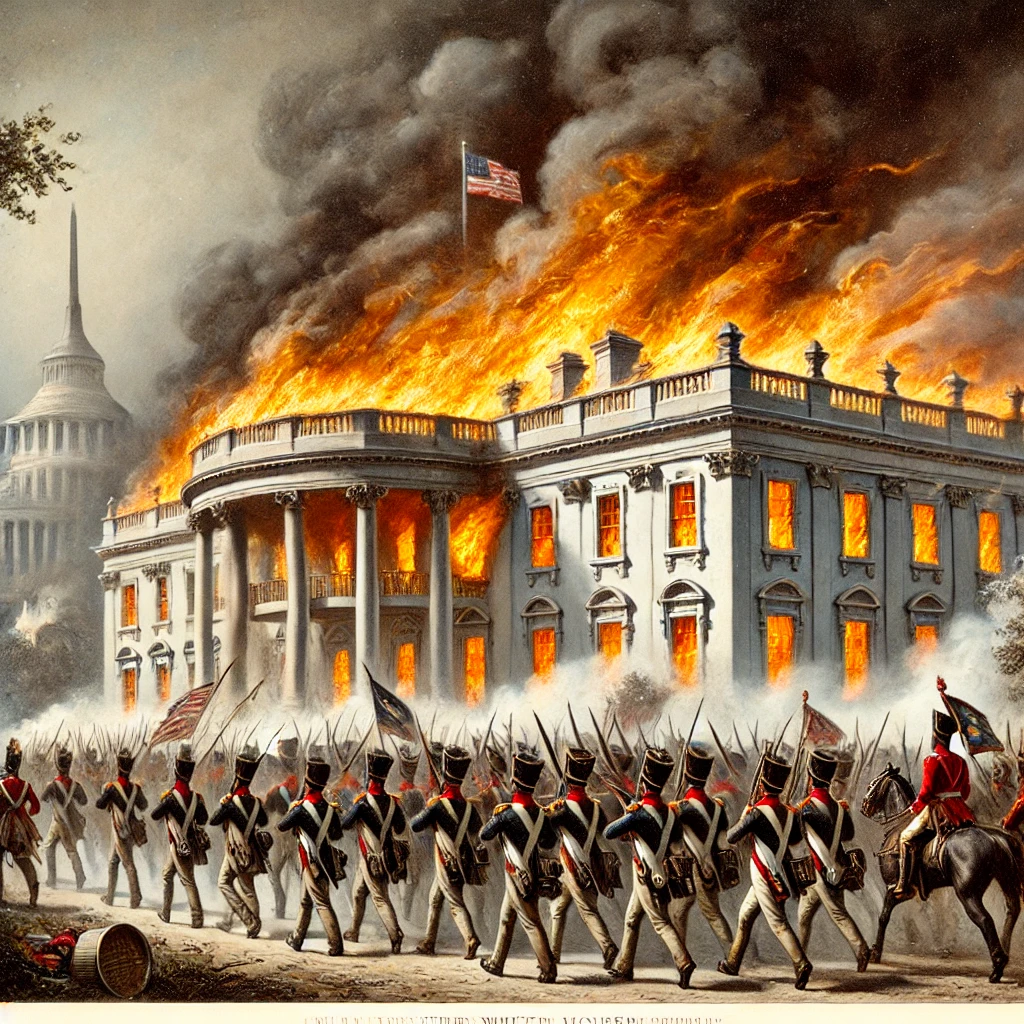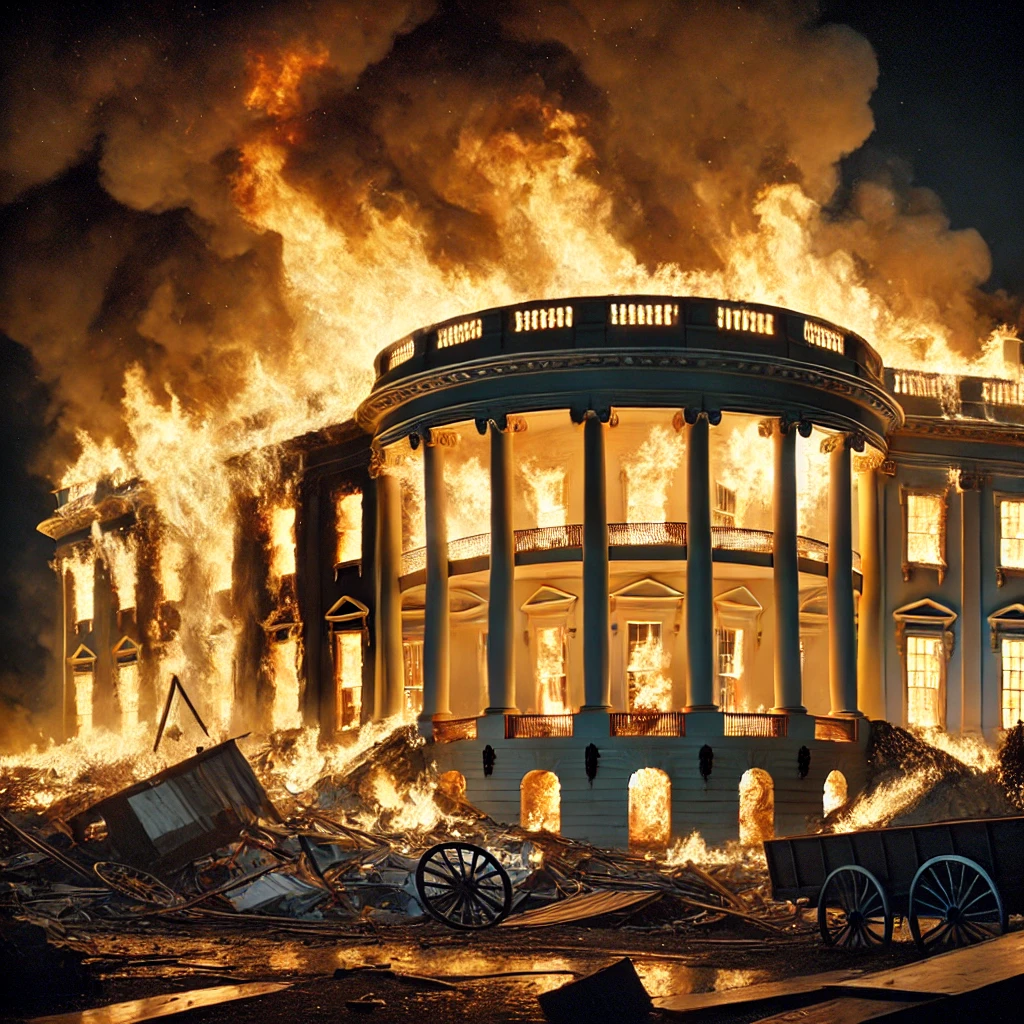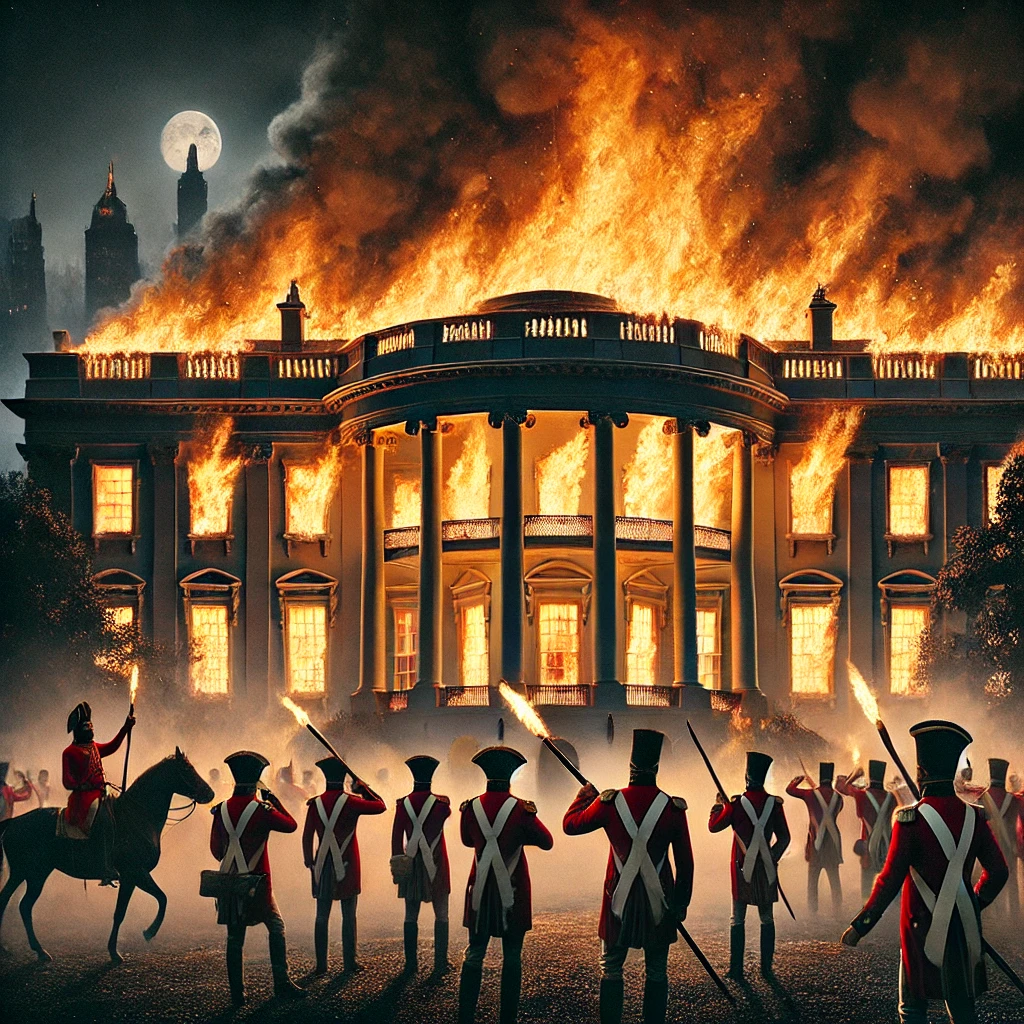On August 24, 1814, during the War of 1812, British troops set fire to the White House and several other key buildings in Washington, D.C. This event marked one of the most significant and symbolic acts of the war, as British forces, led by Major General Robert Ross, captured the American capital. The burning of the White House, then known as the Presidential Mansion, was part of a larger military campaign aimed at crippling American morale and demonstrating British strength.
The invasion came after the American defeat at the Battle of Bladensburg, which allowed British forces to advance into Washington. The British soldiers, angered by the American attack on York (now Toronto) earlier in the war, retaliated by setting fire to key government buildings, including the Capitol, the Treasury Department, and the Library of Congress. The fire caused extensive damage and left the city in a state of disarray.

Impact on American Morale and Reconstruction
The burning of the White House was a devastating blow to American morale. The destruction of such a significant symbol of the presidency and the nation’s capital was meant to demoralize and intimidate the American public. However, the event also galvanized American resolve and contributed to a surge in patriotism and national unity.
Following the British withdrawal, efforts were quickly made to repair and rebuild the damaged structures. The White House was reconstructed by James Hoban, the original architect, and reopened in 1817. The reconstruction preserved much of the original design, and the White House has since become an enduring symbol of the American presidency and resilience.

The Legacy of the British Invasion
The August 24, 1814, attack on Washington, D.C., remains a significant event in American history, illustrating the impact of war on national symbols and institutions. The destruction of the White House and other key buildings was a powerful statement of British military capability, but it also highlighted the vulnerabilities of the young American nation.
In the years following the war, the event contributed to the development of a more robust and defensive approach to national security. The rebuilding of Washington and the strengthening of American military forces reflected the lessons learned from the conflict. The incident is remembered as a pivotal moment in the War of 1812, and its legacy continues to be commemorated in American history and culture.

August 24, 1814, stands as a day of both destruction and resilience, marking a critical chapter in the story of the United States. The burning of the White House serves as a reminder of the challenges faced by the young nation and its enduring capacity to recover and rebuild.
